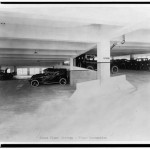“She aspires to write literary fiction,” Elaine tells Mercer of Leigh, all three characters in John Grisham’s Camino Island (2017), “really impenetrable stuff that the stores can’t give away” (112). Literary fiction there is shorthand for critical analysis of the obscure, a kind of stereotype that avoids ambiguity. Mercer is also a stereotype: adjunct instructor deep in college loan debt who has just lost her teaching position to budget cutbacks at a state college, her two books, a novel and short stories, already out of print. But the loss of her teaching job might provide a way for her to do what she really wants to do, which is, well, to write literary fiction. But not the impossible stuff, but books that when signed by the author in first edition hardback copies with covers in fine condition become collector’s items worth thousands of dollars, and might even wind up on a clandestine market. Books like Catch-22; The Naked and the Dead; Rabbit, Run; Invisible Man; The Moviegoer; Goodbye, Columbus; The Confessions of Nat Turner; The Maltese Falcon; In Cold Blood; The Catcher in the Rye; The Sound and the Fury; Cup of Gold; This Side of Paradise; A Farewell to Arms – all listed on page 52 of Camino Island, and are, in a sense, what Grisham’s book is about – the illicit market for such books, that is, not their value as literary fiction, other than to suggest, in an argument of proposal, that these are the kinds of books we should be reading. And to make a search for them easier, Grisham provides, MLA Style, the author’s name and year of publication.
I was going to say I did not have to resort to a black market to obtain my paperback copy of Camino Island (Dell Mass Market Edition, 2018, unsigned, but in good condition), but it might be argued that I did: Susan had pulled it out of the neighborhood free library share box located in the vacant lot near the Line 15 stop down around the corner from our place, had me read the back cover, adding the counsel, “I think you might like this.” Certainly not impenetrable – I read to page 116 last night before putting out the light. And I do like it.
One thing I liked about Camino Island, placed rudely on top of the stack of reading in progress books and magazines on the bedside table, is that it assuaged my guilt over leaving my recently legally purchased copy of the 50th Anniversary edition of Dune so early, in the middle of Chapter Two. The plan was to read Dune along with one of my out-of-town brothers, another Pandemic exercise, and we would compare notes and reactions over the phone. Dune appears to be a book that involves, as the Baron tells Feyd: “‘Listen carefully, Feyd,’ the Baron said. ‘Observe the plans within plans within plans'” (23). I thought I might get a leg up on Dune by watching the 1984 David Lynch film, but I only got about the same distance as I had in the book, although recognizing not much from the book’s opening, before giving up. But my problem with Dune was not that it is impenetrable. So what is the problem?
Meantime, a reading friend wrote in an email to ask me why I read what I read, and even spend time talking and writing about that reading. The occasion of his question was my putting up here at the Toads those recent posts, one on the new quarterly journal “Firmament,” the other on the two stories by Osvaldo Lamborghini, both published in small book, small press format, both just out this month from Sublunary Editions (Seattle), and both, as Grisham might have it, some form of impenetrable. The question stirs the pond of paranoia in the pit of my stomach. For the act of reading is subversive; yet, paradoxically, reading is mostly considered a virtuous activity. To learn to read, to know how to read, these are valued as good activities. Knowing what to read is a different matter.
 We try to imagine a world without cars. Given our experience, it’s difficult: our MOS was wheeled and track vehicle mechanic; we parked cars at the old LA International while working our way through college; we underwrote autos for a time. Our first car was a 1956 Chevy, purchased for $75 from our friend Gary leaving for Vietnam – he never returned. Our second car was a 1949 Ford pickup truck, called the “Peace Truck” for a small peace sign decal we put in the center of the rear window – we used the truck for surf trips. Then we went through a series of old Volkswagens, mostly bugs, but we did have a VW van for a time – it blew a rod one night on way home from a Jimmy Hendrix concert. We try to imagine Kerouac’s On the Road without cars: impossible.
We try to imagine a world without cars. Given our experience, it’s difficult: our MOS was wheeled and track vehicle mechanic; we parked cars at the old LA International while working our way through college; we underwrote autos for a time. Our first car was a 1956 Chevy, purchased for $75 from our friend Gary leaving for Vietnam – he never returned. Our second car was a 1949 Ford pickup truck, called the “Peace Truck” for a small peace sign decal we put in the center of the rear window – we used the truck for surf trips. Then we went through a series of old Volkswagens, mostly bugs, but we did have a VW van for a time – it blew a rod one night on way home from a Jimmy Hendrix concert. We try to imagine Kerouac’s On the Road without cars: impossible.